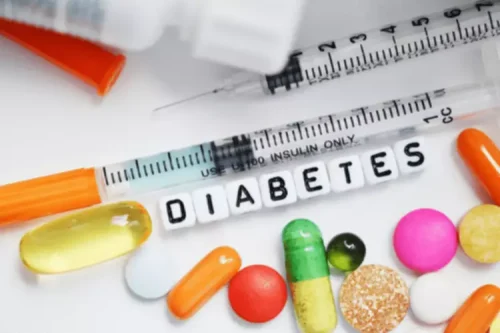
Going on a drinking binge when your body is in a malnourished state may cause abdominal pain, nausea, or vomiting. Infection or other illnesses such as pancreatitis can also trigger alcoholic ketoacidosis in people with alcohol use disorder. In general, the prognosis for a patient presenting with AKA is good as long as the condition is identified and treated early.

Alcoholic Ketoacidosis: Etiologies, Evaluation, and Management
This ketoacidosis is similar to the ketoacidosis that occurs in diabetes except that, unlike in diabetic ketoacidosis, blood glucose levels are low. Growth hormone, epinephrine, cortisol, and glucagon are all increased. Plasma glucose levels are usually low or normal, but mild hyperglycemia sometimes occurs. The patient should have blood glucose checked on the initial presentation. The next important step in the management of AKA is to give isotonic fluid resuscitation.
The Journal of Emergency Medicine
- Patients are generally dehydrated, and serum glucose can be low, normal, or mildly elevated.
- If severe hypokalemia is present dextrose containing fluids can be held until potassium levels are normalized.
- They will also ask about your health history and alcohol consumption.
- This is a common presentation in the emergency department (ED) and requires targeted therapies.
The major cause of morbidity and mortality in patients diagnosed with AKA is under-recognition of concomitant diseases (that may have precipitated the AKA, to begin with). These include acute pancreatitis, gastrointestinal bleeding, and alcohol withdrawal. Mortality specifically due to AKA has been linked to the severity of serum beta-hydroxybutyric acid in some studies. Alcoholic ketoacidosis (AKA) is a condition seen commonly in patients with alcohol use disorder or after a bout of heavy drinking. It is a clinical diagnosis with patients presenting with tachycardia, tachypnea, dehydration, agitation, and abdominal pain.
Treatment / Management

Routine clinical assays for ketonemia test for AcAc and acetone but not for β-OH. Clinicians underestimate the degree of ketonemia if they rely solely on the results of laboratory testing. If you or someone else has symptoms of https://ecosoberhouse.com/, seek emergency medical help. Alcoholic ketoacidosis (AKA) is defined by metabolic acidosis and ketosis in a patient with alcohol use. This is a common presentation in the emergency department (ED) and requires targeted therapies.

They attributed this to the administration of therapy (intravenous dextrose) rather than the withdrawal of the toxin, ethanol. Alcoholic ketoacidosis is a problem caused by drinking a lot of alcohol without eating food. Elevated cortisol levels can increase fatty acid mobilization and ketogenesis. Growth hormone can enhance precursor fatty acid release and ketogenesis during insulin deficiency. Catecholamines, particularly epinephrine, increase fatty acid release and enhance the rate of hepatic ketogenesis.
Dextrose is required to break the cycle of ketogenesis and increase insulin secretion. The dextrose will also increase glycogen stores and diminish counterregulatory alcoholic ketoacidosis hormone levels. It is essential to administer thiamine before any glucose administration to avoid Wernicke’s encephalopathy preci[itation.
- Alcoholic ketoacidosis is a problem caused by drinking a lot of alcohol without eating food.
- This group also proposed a possible underlying mechanism for this metabolic disturbance, naming it alcoholic ketoacidosis.
- The accompanying lack of alcohol in the patient’s body and the fact that for some time, the only source of calories that a patient has is ethanol both contribute to the clinical syndrome that we see.
- Alcoholic ketoacidosis is attributed to the combined effects of alcohol and starvation on glucose metabolism.
Hormonal changes during alcohol intoxication and withdrawal
Possible Complications
- You should also follow all of your doctor’s recommendations to ensure proper nutrition and recovery.
- The doctor must exclude these other causes before diagnosing alcoholic ketoacidosis.
- With timely and aggressive intervention, the prognosis for a patient with AKA is good.


